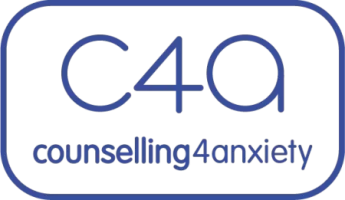In my work with clients who have Obsessive Compulsive Disorder (OCD), there are many techniques that I use to help or assist them in their journey around understanding the condition that affects them.
In this article, I am going to look at some self-compassionate ways of thinking that can help to reduce the impacts of intrusive thoughts. I also need to point to the language that I am using and some people may use the term 'countering negative thoughts'. This is potentially problematic in working with OCD since countering something gives the impression that it needs to be 'challenged' or 'pushed back' or countered as though there is some kind of mental ping pong between negative intrusive thoughts and positive counter-challenge thoughts. This simply may re-enforce or cycle the possibility of more intrusive thoughts affecting someone.
So the following positive cognitions are thoughts that can be placed into an acceptance framework, and internally repeated once or twice when an intrusive negative thought comes into mind. It is important not to get into a repetitive pattern of using the positive cognitions to 'push away' or to suppress negative intrusive thoughts and this feeds into the 'thinking ping-pong' that simply re-enforces and gives more weight to intrusive thoughts. Remember, it is the depth and weight of the meaning given to intrusive thoughts that makes them 'sticky' and impactful. This in turn generates a heightened state of anxiety that fuels ongoing OCD ruminations.
Also, when I speak of an 'acceptance framework', I am suggesting that people with OCD take time to accept that intrusive thoughts will come and go. Additionally, the general public all have intrusive thoughts, though it is how quickly they disengage and move on from the thinking that separates people with OCD and those who don't experience the condition. Accepting negative ruminations does not make the thoughts true or that they are part of your identity. They are simply thoughts and they will have a cycle of their own - they will come and go. It is how much weight, consideration and gravity an individual gives to them which fuels them. So, being an unresponsive to them as possible, will limit their hold on people.
So, here are some elements of positive 'self-talk' that can be used to undermine negative ruminatory thoughts. Again. they are to be repeated once or twice in relation to a specific negative rumination. Individuals should take the time to see which statements resonate within them and ensure that the negative rumination is allowed to come and pass, after the statements are repeated internally a few times. This means that individuals should in a way, retrain themselves in staying in the present and allowing any OCD related ruminations to fall away as they don't give the thoughts credibility or strength by fearing the thoughts.
Positive Self-Thinking Statements
- "It is ok, I recognise that this is part of my OCD and the thoughts will pass. They don't reflect who I am".
- "I realise that the OCD is part of historical fears that I had and which are not relevant today. They are just resonances from history and 'background noise'. I can switch off from them".
- "I know who I am and what my values are. My OCD thoughts do not reflect who I am and the core values of what I stand for".
- "OCD thoughts are the mirror opposite of my values. That is why I get anxious. This means that my core values are moral, open and value the world and people around me".
- "My brain is simply doing its thing and what it learnt it in the past. It does not mean that it is true, it is following an old pathway of thoughts".
- "Just because I think it, does not make it true. It simply means that there are thoughts that are not valid or true that I think of and which I can ultimately disengage from. They are not me".

